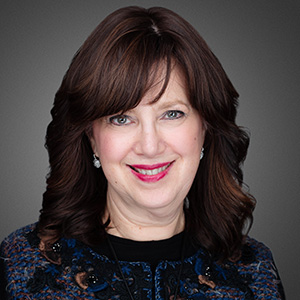Reaching Higher

Esther found her internal greatness — we can too

Did you ever walk down the street behind someone that you didn’t know, but knew which family he was from because you recognized his gait? Or hear a young child use a certain word, and understand whose daughter she was? There are many subtle indications that we are connected to the generations that came before us. When I see certain characteristics in my children that I recognize from my parents, I sometimes wonder, If I met an ancestor from six generations back, would I be able to identify those same traits?
There are many clues indicating that we did not just appear on the stage of history, but for a young person, it can be hard to relate to what came before. A retired Israeli army officer who educates incoming officers once told me: “My students think that Jewish history started 70 years ago with the founding of the state, and I say to them, ‘Where do you think the symbol of the State of Israel, the menorah, came from?’ ” He is trying to educate the next generation of commanding officers in the IDF, who didn’t have a traditional chinuch, to teach them we come from a rich past, so they understand what they are fighting for.
How should we respond to a young man, who learned in the finest yeshivahs but is no longer frum, who says, “Maybe part of my problem is that I find it hard to connect to the past, so when you tell me about how previous generations sacrificed to remain Jewish, it doesn’t mean anything to me”?
The Midrash Rabbah (Chayei Sarah) tells us a story. Rabi Aviva was teaching a group of students, and they were dozing off. Wanting to awaken them, he said, “What did Esther see that she should rule over 127 lands? Let Esther, the daughter of the daughter of Sarah who lived one hundred and twenty and seven years, come and rule over one hundred and twenty and seven lands.”
Where You Come From
How can we understand this? It’s hard to imagine that the great Rabi Akiva, who in 12 years accumulated 24,000 students, could have been a boring teacher. And if his students were nodding off, how would the comparison wake them up?
In the shul where I grew up, I remember once overhearing a comment, “The rabbi spoke brilliantly! It’s a shame that the people who really needed to hear it didn’t listen.” That remark doesn’t hold up — we’re meant to take words of mussar to heart ourselves, not focus on the next person — but it does highlight the way many-well placed words of inspiration are missed by those who need them most.
Rav Eliyahu Dessler (Michtav MeEliyahu, chelek III) points out that there are two ways to elevate an individual. One is to point out his shortcomings and the ramifications of his wayward behavior, and the second is to paint a picture of the greatness he comes from, and show him that he too can attain elevated ideals.
He explains that Rabi Akiva’s students were dozing not because of any shortcoming in the teaching style of their great teacher, but because Rabi Akiva was talking about lofty topics pertaining to very spiritually developed persons. The students tuned out because they said to themselves, “What does this have to do with me? I’m just a regular person.” How did he awaken them? By telling them about the great Queen Esther, tragically ensconced in an alien environment in the palace of Achashveirosh, who needed to go to the king unbidden and beg for the life of her people.
The Greatness of Esther
“Vatilbash Esther malchus — and Esther donned royalty.” Rashi explains that malchus here means ruach hakodesh, Divine Inspiration. How did Esther, despondent over her personal loss and petrified that she may not even survive the encounter, reach the level of prophecy, which requires focus and joy? Esther thought about where she came from, where every Jewish girl comes from, about the greatness of Sarah Imeinu. Sarah had a hard life. She moved a lot, was kidnapped twice, didn’t become a mother until very late in life, and she had internal family issues with Hagar and Yishmael. Yet at the end of her life, the Torah testifies that she lived one hundred and twenty and seven years, all equal in their goodness.
Esther contemplated deeply the life of Sarah, and realized: If I come from a person who was able to lift herself above personal difficulty and become great, then that greatness is latent inside of me. By contemplating Sarah’s greatness, Esther attained ruach hakodesh, which means she attained a vision of the internal spiritual reality of the world, which Rav Dessler equates with the Torah understanding of malchus, sovereignty. She came into the inner chamber as the Jewish Queen she was internally, and with that force she subjugated Achashveirosh to her will. Contemplating the 127 years of Sarah gave Esther dominion over the 127 lands of Achashveirosh’s kingdom.
The Sages teach that a person is obligated to say, “When will my actions attain the level of those of my forebears, Avraham, Yitzchak, and Yaakov?” We are obligated? We can only be obligated in something that is possible for us. A good (and smart) friend of mine pointed out that Chazal don’t say we are obligated to ask, but rather to say (chayav adam lomar). It’s a statement, not a question. It anticipates that the outcome is not in question — the only question is when we will arrive there.
Actualizing Growth
Of course the biggest obstacle for our children, students, and ourselves is that we, like the students of Rabi Akiva, feel unworthy. The voice of the soul is positivity, the voice of the body is negativity. We identify with our shortcomings, which are rooted in the body. Rabbi Avigdor Miller (Sha’arei Orah) explains that when we are taught we should be tocho k’baro, that our inside should be congruent with our outside, it doesn’t mean that we should make sure our outward behavior reflects who we truly are internally. While this is certainly a true statement, he explains that here the Sages are giving us a formula: Our internal level will be elevated by our outward behavior, or, as is sometimes said: Fake it till you make it. As long as the goal is to grow and not to fool ourselves, it is valid to take on behaviors that we know are a step above our internal level.
A woman once asked me at the end of a shiur on tefillah, “How do I get my young teenaged daughters to daven on Friday nights?”
I responded, “Let them see you daven every Friday night.” She took my words to heart and started davening every Leil Shabbos. Some years later her husband became ill. By that time all her daughters had emulated her davening. She told me how meaningful it was to her, that all her girls were daveners, and how critical it was when her husband was ill — and how grateful she was for this when he recovered.
We can’t set the bar high for those in our care unless we set our sights high for ourselves. We are here to become, not just to be. Share your struggle to grow with your kids. Sometimes, for example, we succeed in putting a smile on our faces when we are sad, in really connecting to our Creator when we daven, in pulling ourselves out of self-absorption to truly feel for another. Sometimes we have a setback and we snap when we’re down and davening is nothing more than a blur and we can’t think of anyone but ourselves. There is little more authentic and compelling than sharing the challenges we have in trying to, in some way, emulate those great people from whom we all come. If we reach higher, we set the stage for those who come after us to believe that they can too.
Originally featured in Family First, Issue 581. Debbie Greenblatt is a senior lecturer for the Gateways organization and a teacher of both observant and not-yet-observant Jewish women for over 30 years. Debbie’s lecture topics include Jewish texts, Jewish thought, and relationships.
Oops! We could not locate your form.







